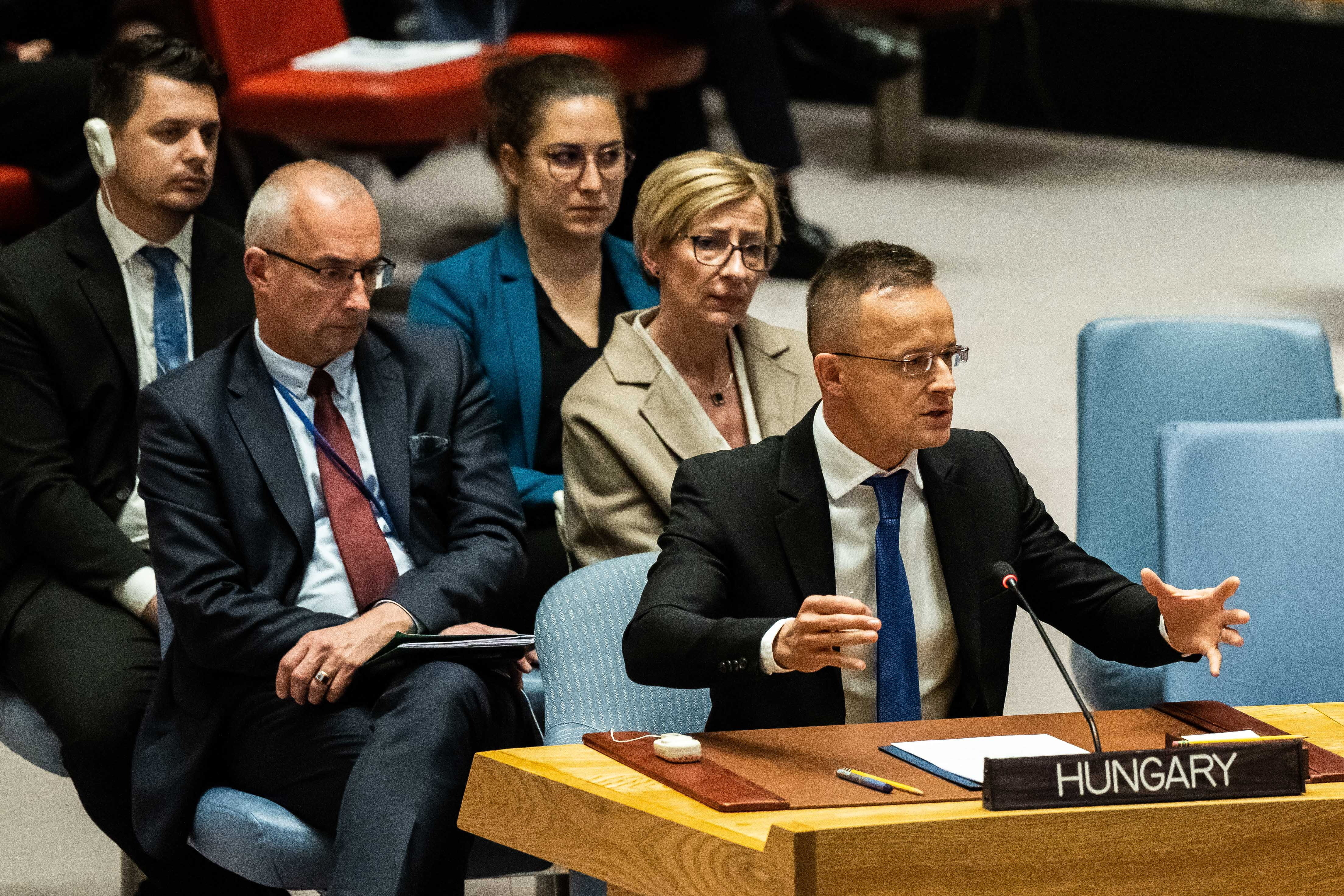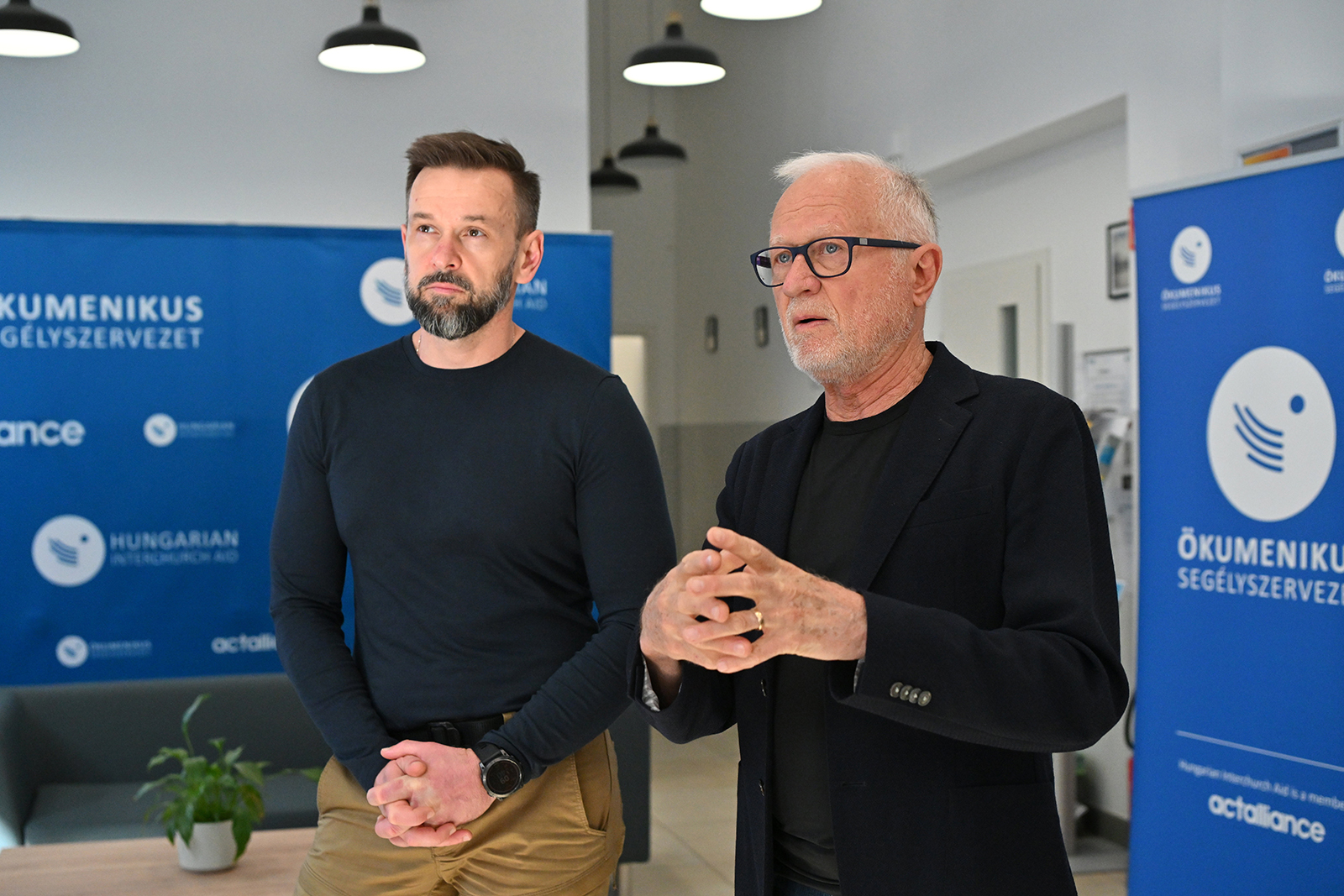Hungary Wins gas Price cap Exemption

In this photo published by the Ministry of Foreign Affairs and Trade (KKM), Minister Péter Szijjártó speaks at the opening debate of the UN Security Council in New York on October 28, 2022. He told the meeting there must be talks on peace in Ukraine. “If there are no negotiations, then there will be no peace; if there are negotiations, then there is hope for peace,” he stated.
Photo by MTI / KKM
The European Commission’s latest proposal to fight high energy prices and ensure security of supply announced on October 18 will not affect Hungary’s long-term gas delivery contracts with Russia, Prime Minister Viktor Orbán said on his Facebook page onOctober 21. The PM said he had secured this exemption during asummit in Brussels taking place that week.
Describing the “gas price cap” as the “greatest threat” to Hungary, Orbán had warned that the proposal by the EC would have compromised the delivery of gas to Hungary “within days.” Instead, “We agreed that if there is a gas price cap in Europe, it will not affect those long-term contracts without which Hungary’s gas supply would be made impossible from one day to the next,” he said. “We have successfully averted this danger.”
The EC’s October 18 proposal contained three main points. It first proposed aggregating EU demand for gas through joint purchasing to establish better negotiating leverage and ensure supply across the EU.
Second, it sought to create a new pricing benchmark for liquified natural gas (LNG) by early next year but hoped to create a “price correction mechanism” in the short term, what Hungary has referred to as a “gas price cap.” Finally, the proposal outlined the creation of solidarity rules between EU member states, obligating them to ensure supply to others in the case of an emergency.
At a meeting of EU energy ministers in Luxembourg on October 25, Minister of Foreign Affairs and Trade Péter Szijjártó said that Hungary would only support a joint European Union gas procurement platform if it could participate voluntarily. He described a proposal requiring member states to notify Brussels of gas procurements over 472 million cubic meters as “nonsense” and “unacceptable.”
Regarding the solidarity mechanism, he said that giving gas bought with Hungarian taxpayers’ money, stored in facilities in Hungary, to other member states was “unthinkable.”
Pipeline Security
Earlier on October 19, Szijjártó related how Hungary’s gas supply through the TurkStream pipeline, through which it receives most of its gas from Russia, had been secured “for the long term.” Thiswas due to Dutch authorities reissuing an export permit for a company in the Netherlands that performs maintenance work on the pipeline.
Szijjártó added that Hungary’s gas reserves currently cover just over half its annual consumption, well above the average rate of 27.5% for the EU as a whole.
Yet, Hungary intends to significantly reduce its gas consumption over the next 30 years, from 11.5 billion cubic meters annually to roughly 3-4 bcm, Minister of Technology and Industry László Palkovics.
Speaking in Brussels on October 24, he said the country’s dependence on gas procured abroad could be significantly reduced by 2050 with the help of domestically produced sustainable energy. According to the minister, most of the district heating systems, 70% of which currently operate with gas, could transition completely to geothermal power by that time.
That will surely please the majority of Hungarians. According to an annual European Investment Bank (EIB) survey, roughly 77% of Hungarians believe the war in Ukraine and its subsequent consequences on oil and gas prices should accelerate the transition to sustainable energy sources. The figure averages 65% across the EU.
Some 71% of Hungarians believe that highly polluting goods and services such as air travel and SUVs should be taxed more heavily, and 65% said energy prices should be tied to consumption, with those consuming the most being charged more.
This article was first published in the Budapest Business Journal print issue of November 7, 2022.
SUPPORT THE BUDAPEST BUSINESS JOURNAL
Producing journalism that is worthy of the name is a costly business. For 27 years, the publishers, editors and reporters of the Budapest Business Journal have striven to bring you business news that works, information that you can trust, that is factual, accurate and presented without fear or favor.
Newspaper organizations across the globe have struggled to find a business model that allows them to continue to excel, without compromising their ability to perform. Most recently, some have experimented with the idea of involving their most important stakeholders, their readers.
We would like to offer that same opportunity to our readers. We would like to invite you to help us deliver the quality business journalism you require. Hit our Support the BBJ button and you can choose the how much and how often you send us your contributions.











